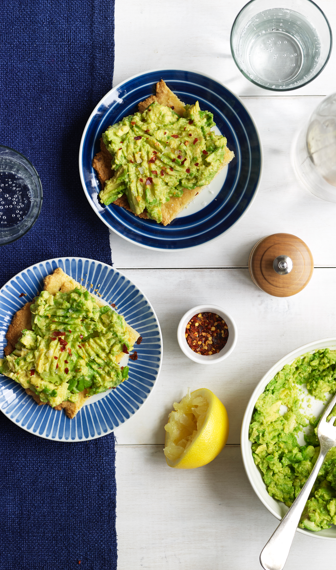What are superfoods? Popular magazines, TV shows, and blogs are all buzzing about them, but it’s hard to pin down a precise answer. That’s because, unlike organic foods, superfoods are not regulated by the FDA or any other scientific or governing body. Most experts agree, however, that a superfood is a food that contains high levels of vitamins and minerals. They may also provide antioxidants which help prevent cell damage. Below, we’ve listed six that we’re savoring this summer.

Chia Seeds
The benefits of chia seeds are many. They’re packed with fiber and calcium and, given their surprising amount of plant-based protein and omega-3 fatty acids, they’re a great choice for vegetarians and vegans. Sprinkle them on a salad or let them sit overnight with nut milk, berries, and stevia to make a tasty chia seed pudding.[1]
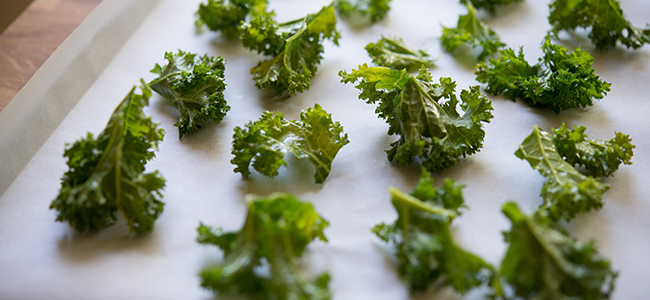
Kale
Kale recipes are everywhere, and that’s because the leafy green vegetable is a powerhouse packed with vitamins A, C, and K as well as calcium and iron. To boot, kale contains only 36 calories and zero fat per cup. The superfood can be tough to eat in its raw state, so we recommend marinating it in heart-healthy oils overnight, roasting it, or incorporating it into soups.[2]

Raspberries
Raspberries burst with more than just color and flavor. They’re also a good source of antioxidants, such as Vitamin C, quercetin (a flavonoid), and gallic acid (a polyphenol). These help fight against cancer, heart and circulatory disease, and age-related decline.[3]
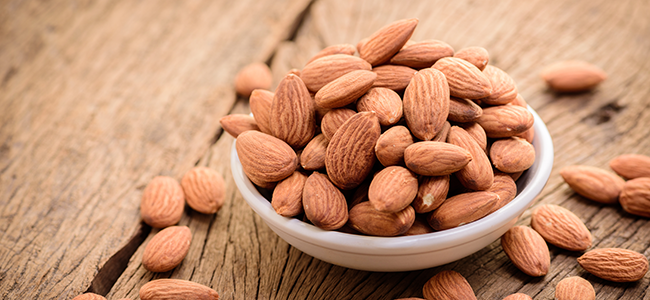
Almonds
A handful of almonds will give you a healthy dose of protein and polyunsaturated and monounsaturated fats, which is probably why so many reach for almonds as a healthy anytime snack. A serving of almonds will also fulfill 37% of your recommended daily allowance of vitamin E,[4] an antioxidant that helps prevent cell damage.[5]
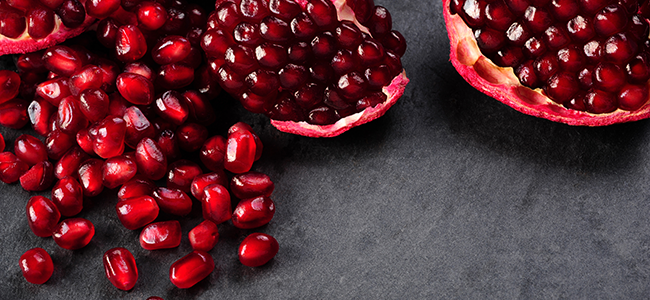
Pomegranate
Native to Iran, pomegranates have been eaten for millennia in the east. In recent years they’ve caught on in the west and for good reason: the juicy fruit contains vitamin C and other antioxidants as well as anti-inflammatory properties. Some studies show pomegranate may even help prevent Alzheimer’s, heart disease, and cancer.[6]
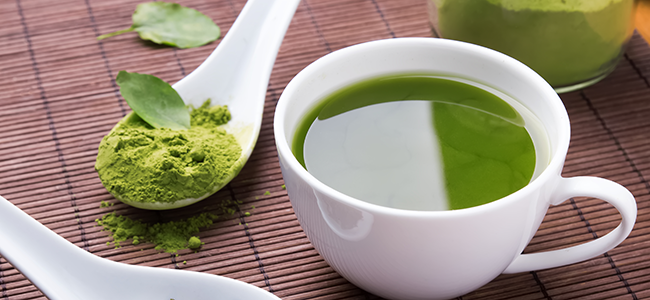
Matcha Tea
Matcha tea benefits tea-drinkers more than regular green tea. That’s because it is made by suspending the finely chopped leaves of the highest quality green tea plants in water—so you’re actually consuming the leaves, not just an infusion of them. It’s also because matcha contains a high level of catechin EGCg, an antioxidant that many consider to be the most potent cancer-fighting organic compound.[7]
[1] https://www.healthline.com/nutrition/11-proven-health-benefits-of-chia-seeds
[2] http://www.mindbodygreen.com/0-4408/Top-10-Health-Benefits-of-Eating-Kale.html
[3] http://berryhealth.fst.oregonstate.edu/health_healing/fact_sheets/red_raspberry_facts.htm
[4] https://www.healthline.com/nutrition/9-proven-benefits-of-almonds
[5] http://www.healthline.com/health-slideshow/all-abo…
[6] http://www.medicaldaily.com/pomegranate-health-benefits-fruit-helps-protect-against-plaque-hunger-and-certain-340020
[7] http://www.naturallivingideas.com/10-amazing-benefits-of-matcha-green-tea/
